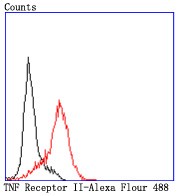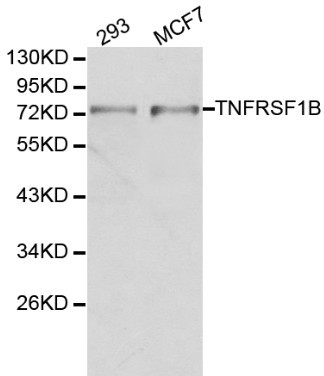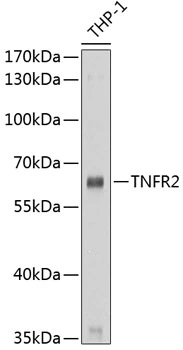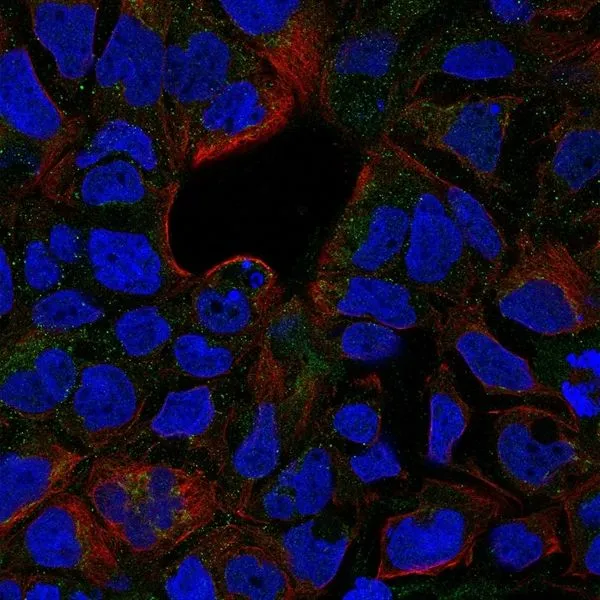TNF Receptor II antibody [80M2]
GTX54424
ApplicationsFunctional Assay, Flow Cytometry, ImmunoFluorescence, ImmunoPrecipitation, Western Blot, ELISA, ImmunoCytoChemistry
Product group Antibodies
ReactivityHuman, Rat
TargetTNFRSF1B
Overview
- SupplierGeneTex
- Product NameTNF Receptor II antibody [80M2]
- Delivery Days Customer9
- Application Supplier Note*Optimal dilutions/concentrations should be determined by the researcher.Not tested in other applications.
- ApplicationsFunctional Assay, Flow Cytometry, ImmunoFluorescence, ImmunoPrecipitation, Western Blot, ELISA, ImmunoCytoChemistry
- CertificationResearch Use Only
- ClonalityMonoclonal
- Clone ID80M2
- Concentration100 ug/ml
- ConjugateUnconjugated
- Gene ID7133
- Target nameTNFRSF1B
- Target descriptionTNF receptor superfamily member 1B
- Target synonymsCD120b, TBPII, TNF-R-II, TNF-R75, TNFBR, TNFR1B, TNFR2, TNFR80, p75, p75TNFR, tumor necrosis factor receptor superfamily member 1B, TNF-R2, TNF-RII, p75 TNF receptor, p80 TNF-alpha receptor, tumor necrosis factor beta receptor, tumor necrosis factor binding protein 2, tumor necrosis factor receptor 2, tumor necrosis factor receptor type II
- HostMouse
- IsotypeIgG1
- Protein IDP20333
- Protein NameTumor necrosis factor receptor superfamily member 1B
- Scientific DescriptionThe protein encoded by this gene is a member of the TNF-receptor superfamily. This protein and TNF-receptor 1 form a heterocomplex that mediates the recruitment of two anti-apoptotic proteins, c-IAP1 and c-IAP2, which possess E3 ubiquitin ligase activity. The function of IAPs in TNF-receptor signalling is unknown, however, c-IAP1 is thought to potentiate TNF-induced apoptosis by the ubiquitination and degradation of TNF-receptor-associated factor 2, which mediates anti-apoptotic signals. Knockout studies in mice also suggest a role of this protein in protecting neurons from apoptosis by stimulating antioxidative pathways. [provided by RefSeq, Jul 2008]
- ReactivityHuman, Rat
- Storage Instruction2°C to 8°C
- UNSPSC12352203
References
- Lee CJ, Wang CC, Chen M, et al. Development of an inflammatory tissue-selective chimeric TNF receptor. Cytokine. 2019,113:340-346. doi: 10.1016/j.cyto.2018.10.003Read this paper






